How to prevent the brain from aging too fast?

The brain is an organ that, like the rest of our body, ages over the years.
If we all want to stay younger it is not only because we dislike wrinkles, but also to avoid the many diseases related to aging.
- How Alzheimer's and dementia are different (and why this is considered the greatest health challenge of our time)
Forecasts indicate that by the year 2050 25% of the European population will be over 65 years old and the number of people over 80 years old will triple. What Is Ageless Brain?
But is there a fountain of youth for our brain?
Although nothing possibly takes us back in time, we can try to age in a healthy way and reduce the effect that the passage of time has.
What is aging?
Aging could be defined as the set of changes that occur with age and cause a decrease in our physiological, motor and cognitive capacities.
- "A horrendous experience": a daughter's testimony about her mother's battle with dementia
The primary is gradual and inevitable and occurs throughout our lives.
Secondary or premature is triggered by the suffering of certain diseases or substance abuse, and can be prevented.
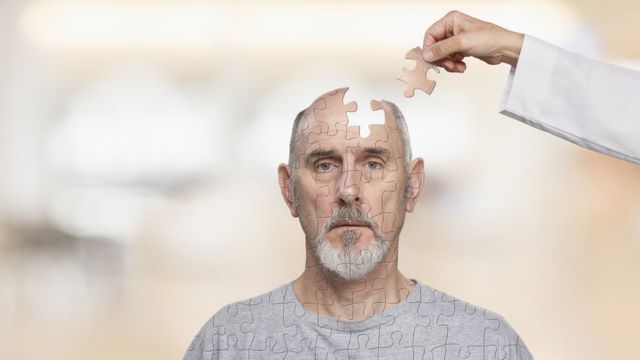
IMAGE SOURCE,GETTY IMAGES
The brain is an organ that, like the rest of our body, ages over the years.
The chronological age (that of the birth certificate) indicates the time that has elapsed since our birth.
However, there is also physiological age, which depends on the condition of our body and can be less than chronological (if we take care of ourselves) or older (if we have bad habits).
Brain aging
With age, the size of the brain decreases, we lose neurons and the production of hormones and neurotransmitters is altered .
However, the most important change that occurs is the loss of many of the connections between neurons, long-lived cells that do not divide and therefore hardly regenerate.
Another consequence of brain aging is the accumulation of proteins in the form of aggregates that tend to be deposited both inside and outside the neurons.
This can trigger the development of age-related neurodegenerative diseases, such as Alzheimer's disease or Parkinson's.
It should be clarified that what is commonly referred to as senile dementia is an outdated term. Aging does not necessarily mean dementia or significant memory loss.
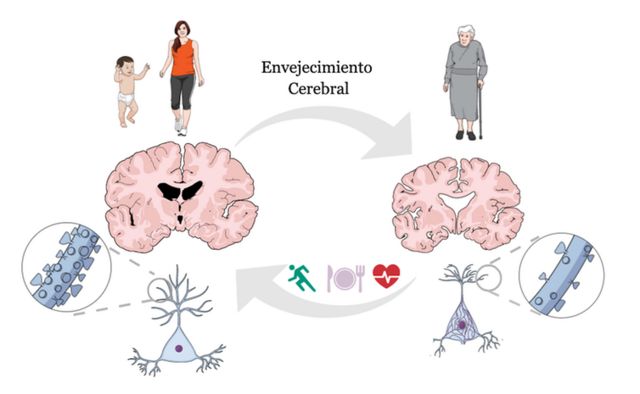
If there is a significant loss of memory and learning capacity, it would be related to a specific disease and not to normal aging of the brain.
read more information about Testosterone Cypionate for sale on ACNM Online Pharmacy website
Measures to slow down aging
Diet is essential for healthy aging.
The most recommended is the Mediterranean, which briefly implies a low consumption of meat and poultry, a low to moderate consumption of dairy products, a moderate amount of alcohol (wine) and fats (olive oil), and a high intake of vegetables, legumes, fruits, cereals and fish.
The Mediterranean diet has been shown to reduce the risk of cognitive failure and diseases such as Alzheimer's.
Also, calorie restriction or limiting the calories we eat can help slow aging.
In addition to taking care of what we eat, it is advisable to sleep eight hours a day.
Maintaining a good wake-sleep cycle is essential for many brain functions, for example for the elimination of toxins from the brain that have accumulated during the day.
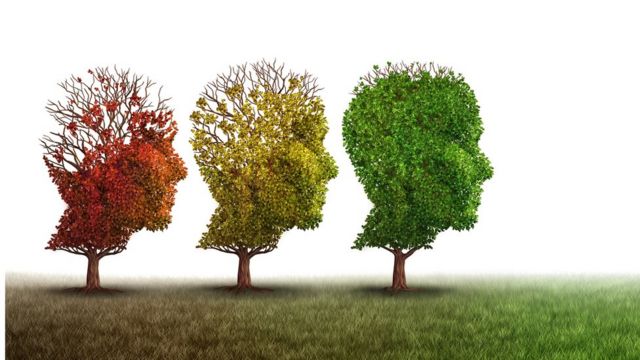
IMAGE SOURCE,GETTY IMAGES
Also, calorie restriction or limiting the calories we eat can help slow aging.
While we sleep, the space that exists between neurons increases, facilitating their cleaning and proper functioning. Therefore, maintaining a restful sleep promotes healthier aging.
Regular exercise and physical activity are key to reducing the effects of aging.
Clinical studies indicate that moderate intensity physical training plays a neuroprotective role, slowing down the decrease in brain volume and improving its function.
Specifically, aerobic exercise improves cognitive function, not only during aging but also in people suffering from neurodegenerative diseases.
On the other hand, it has been proven that those people who have a higher educational level or who maintain a certain intellectual activity - reading, studying or acquiring new skills - have a lower predisposition to develop dementia.
The basis for this neuroprotection is associated with the formation of new connections between neurons.
Other healthy habits can also help us avoid the effects of premature aging.
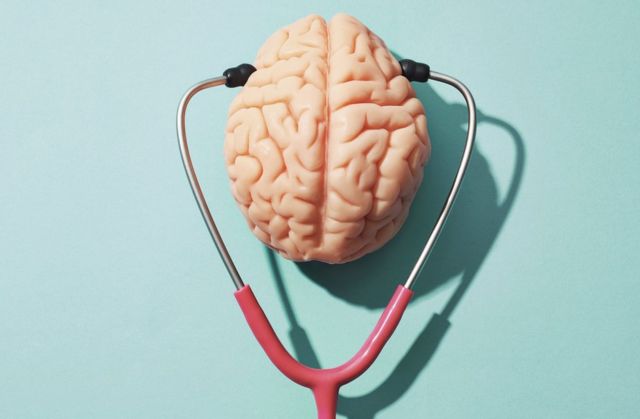
IMAGE SOURCE,GETTY IMAGES
It has been proven that those people who have a higher educational level or who maintain a certain intellectual activity - reading, studying or acquiring new skills - have a lower predisposition to develop dementia.
Without going any further, while a large intake of alcohol runs the risk of inducing cognitive failure, other alcoholic beverages can be beneficial in maintaining good mental health.
Wine, for example, is high in polyphenols, which have anti-inflammatory and antioxidant action.
Tobacco is definitely a habit that should be avoided, as it has been linked to the acceleration of aging and the appearance of cognitive problems and dementia.
Nor should we lose sight of the risk factors related to chronic diseases that are highly prevalent in the elderly.
The maintenance of the activity and integrity of the brain depends, to a large extent, on the blood vessels that maintain good irrigation.
Hypertension, atherosclerosis, and high cholesterol levels increase the chances of developing cognitive failure, stroke, and dementia.
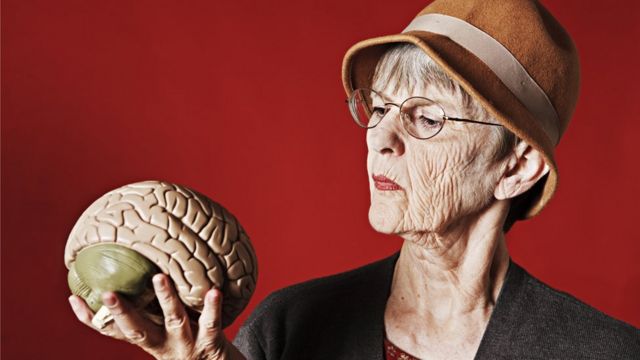
IMAGE SOURCE,GETTY IMAGES
Diabetes and obesity affect glucose metabolism and lead to insulin resistance. Both alterations could cause chronic damage to neurons and accelerate brain aging.
To this is added that diabetes and obesity affect glucose metabolism and generate insulin resistance.
Both alterations could cause chronic damage to neurons and accelerate brain aging.
Mood disorders don't help either.
Depression is a very common emotional disorder in older people and is caused by an imbalance in neurotransmitters, which are the molecules that neurons use to communicate.
This mismatch could translate into long-term brain malfunction, accelerating brain aging.
In short, the key to maintaining a healthy and young brain is the same as for the rest of the body.
That is, you have to maintain a healthy diet, get enough sleep, avoid excessive alcohol consumption, avoid tobacco and stress, do moderate exercise, and avoid the development of other diseases or, at least, keep them under control.
* Inés Moreno González. Professor and Ramón y Cajal Researcher in Neurodegenerative Diseases, CIBERNED, IBIMA, University of Malaga.